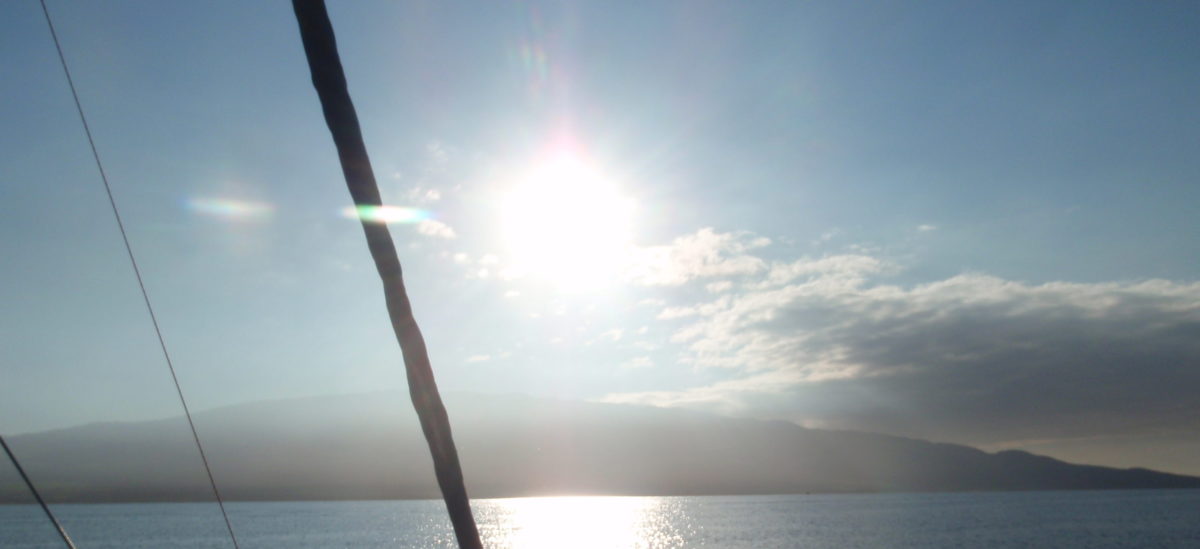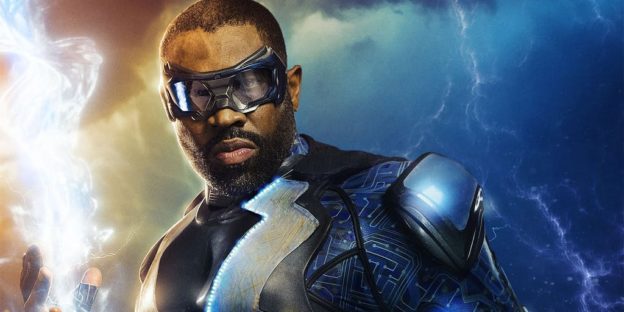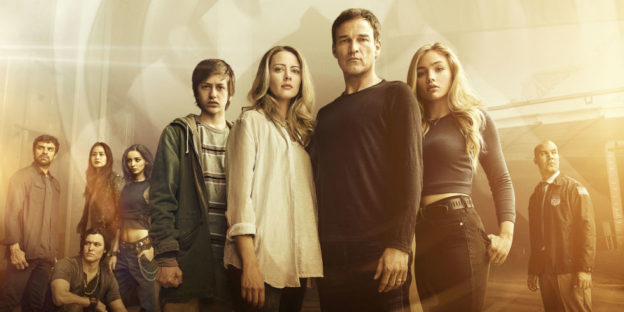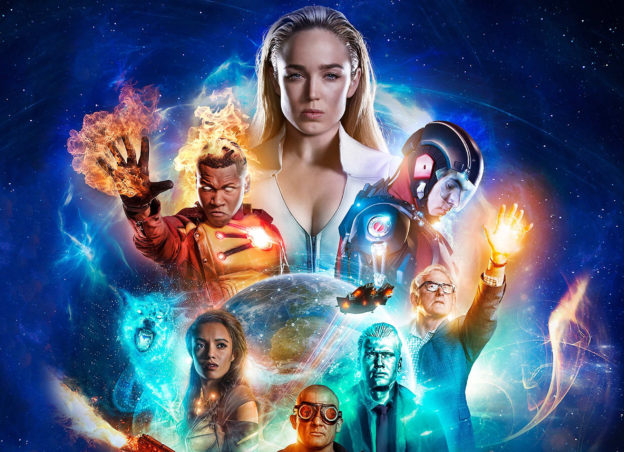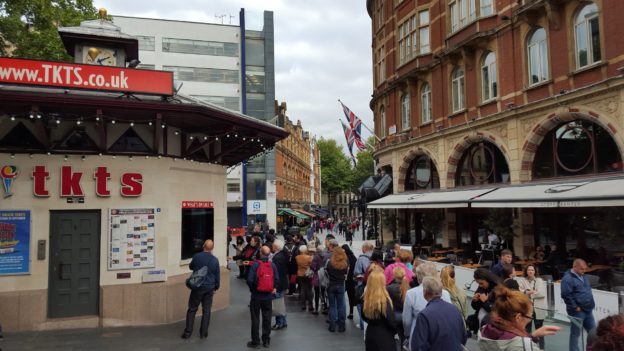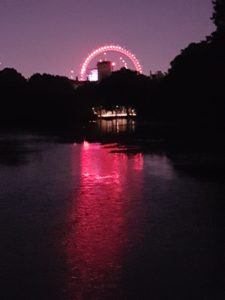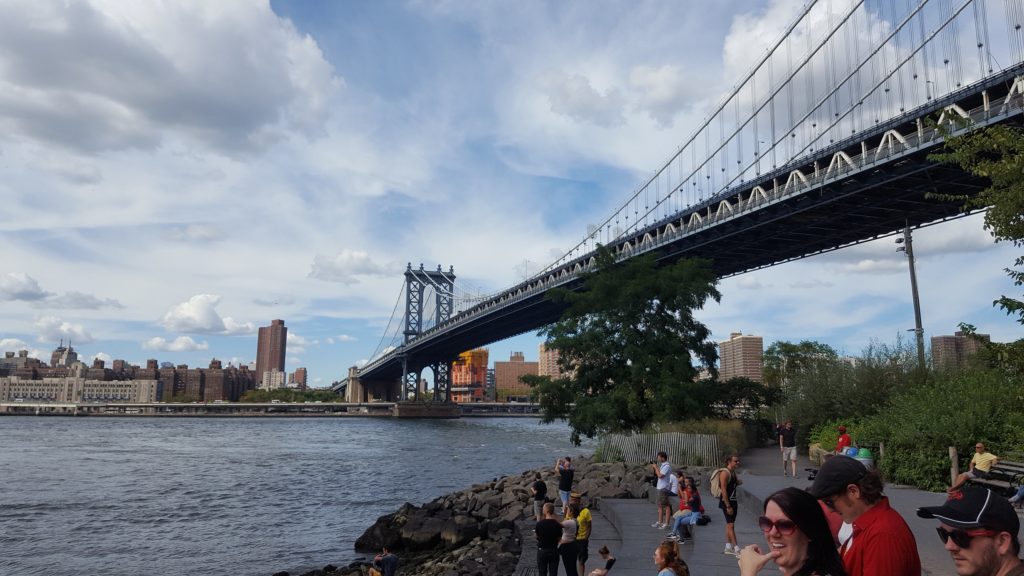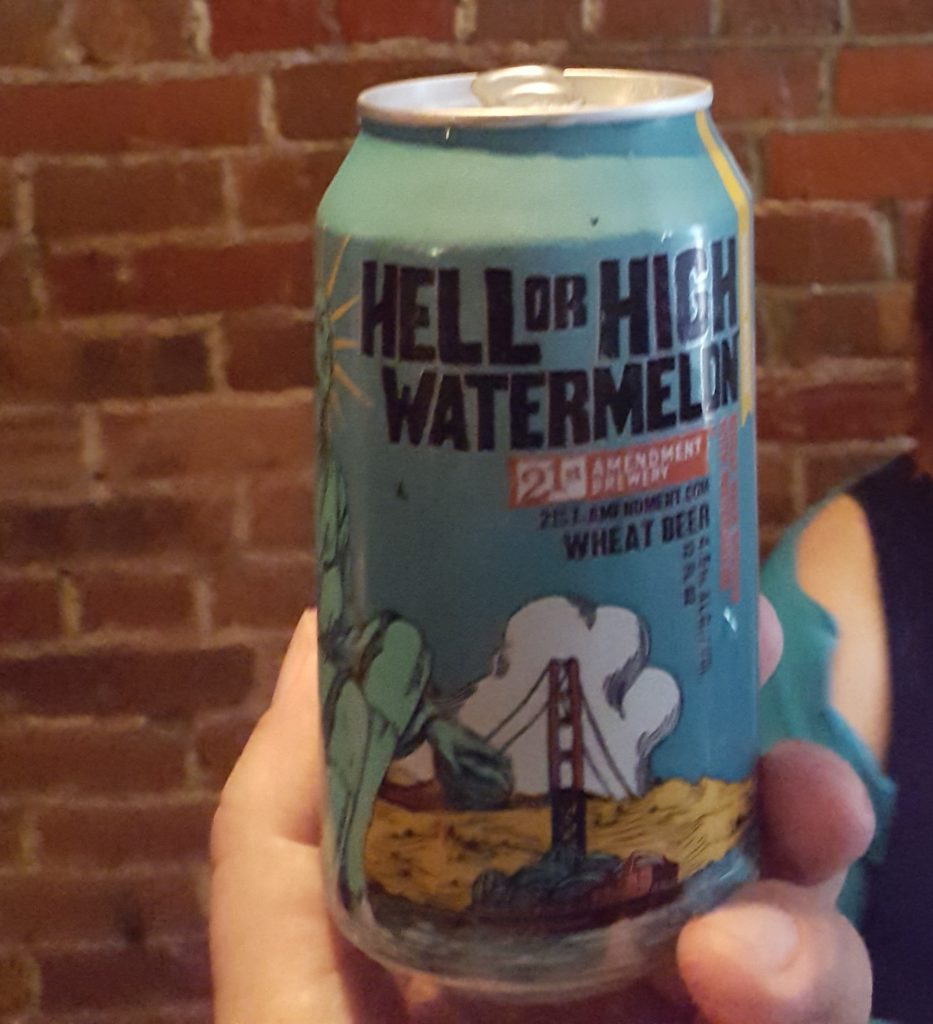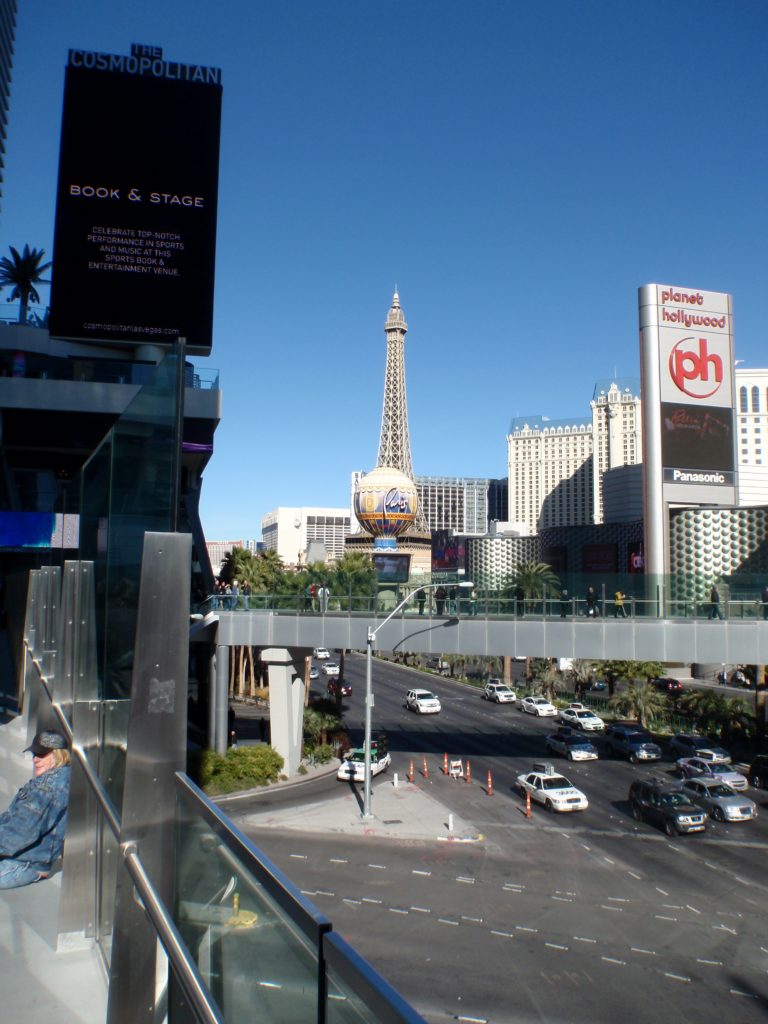Comic book TV is everywhere these days, and it’s happening all year. So I’ll hand out awards and rankings in June, but in the meantime, we’ll be reviewing shows one by one as they wrap up.
Last instalment: C-list X-Men characters gathered for a tale of family, bigotry, and what it might be like if America’s law enforcement agencies were openly and dangerously racist.
This instalment: DC characters gather for all of that exact same stuff only it’s actually good this time.
Short version: With Black Lightning, the Greg Berlanti Mask-Based Action Fun Factory tries something different, and boy howdy it works out.
Premise
As a teen, Jefferson Pierce developed lightning-based powers, which he would learn to use to protect his home of Freeland from local gang the 100. Nine years ago, Black Lightning and the 100’s leader, the super-strong albino and City Councillor-turned-criminal Tobias Whale had a vicious supposedly-final battle which both men limped away from thinking the other was dead. Badly wounded, Jefferson put Black Lightning away for the sake of his young daughters and in hopes of repairing his relationship with his soon-to-be-ex-wife Lynn… against the advice of his mentor and surrogate father figure, tailor/hacker/designer of superhero costumes/possessor of some suspicious skill sets Peter Gambi.
Today, Jefferson serves Freeland by shaping the minds of the black community’s youth as principal of Garfield High School, believing he can do more good steering kids away from gang life. His daughters are flourishing (Anissa is pre-med, Jennifer is still in high school and the more rebellious one), he’s inching towards reconciliation with Lynn, he hopes… but the 100 is stronger than ever, with such control over Freeland the good people of the city are forced into protest marches against the local crime lords. Which is risky business. I mean, think about how the cops respond to protest marches… Anyway, Gambi pleads with Jefferson that the city needs Black Lightning, but Lynn has him refusing to return to action… until the 100 come for his daughters. Jefferson comes out of retirement to save Jennifer and Anissa, but when he’s asked (and rightly so) why only his children were saved, Jefferson makes a choice…
“It is time that people know that Black Lightning is back.”
From there, he’s taking on the 100, their chief pimp/dealer Lala, a still-vicious Tobias Whale, and the sinister cabal that they’ve been reporting to… a cabal with which Gambi has an uncomfortable familiarity.
Also… habitual protester Anissa is developing powers of her own, and has some thoughts about how to use them.
And they’d better get their heroic ducks in a row, because there’s a new drug circulating called Green Light that’s highly addictive, and is giving people powers. Powers mixed with PCP-like rageouts.
Sidebar: Is it part of the Arrowverse or not? Who knows at this point. Black Lightning is its own thing for the first season, but I feel that they’ve left the door open for crossovers with the Flash, Green Arrow, and company should the desire strike them later. They establish that other superheroes exist in other cities, but don’t mention Central or Star City in particular. They name drop Vixen, who exists on Earth-1 with everyone else, but also Supergirl, who merely visits Earth-1 on special occasions.
And those name drops aren’t definitive, since they also established that superhero comics exist in this world, in an amusing Easter egg where Anissa and love interest Grace discuss comic characters the Outsiders, the superteam where their comic incarnations met. So is Vixen a legit hero, or a comic book character? Do the people of Earth-1 know Supergirl from the 2016 alien invasion and the 2017 alt-Earth-Nazi invasion, or are we somewhere else, somewhere with a Supergirl and a Vixen? It’s unclear, and will remain unclear until someone in the Berlanti group says “Screw it, put Black Lightning in the crossover this year,” or Team Flash makes it clear that Black Lightning is on Earth-47 or whatever. Until then, Black Lightning stands alone, but luckily, it’s more than capable of doing so.
Strengths
What we have here is the bulk of Luke Cage’s debut season polished up and done better.
Cast: There are some strong performers in this cast, most notably Cress Williams as Jefferson and Nafessa Williams as Anissa. China Anne McClain does well as the younger, brattier sister, though I do not comprehend why she’s second-billed instead of Nafessa Williams. Better agent? Anyway, by and large, the Pierce family kills it on a weekly basis, as does Damon Gumpton as the closest thing Black Lightning has to a friend on the police force. He’s neither racist nor on the take, so that’s a big advantage over most of the cops we meet in early episodes.
The 100: How fortunate for the series that Marvin ‘Krondon’ Jones III exists. Black albino actors who look capable of hoisting a grown man in the air and killing him with one hand cannot be that easy to come by, but Krondon is basically perfect for this role. Tobias Whale is a destructive force, a black man who hates other black men… well not exactly. As he explains to a henchman that’s been screwing things up, “No, I love black people. I hate incompetent, thick-lipped, scratch-where-it-don’t-itch Negroes like you.” If not on network television he might have used a different word than “Negroes.” He’s got a lethal assistant calling herself Syonide (who’s kind of fun to watch in a fight, if I’m being honest); gets his hooks into Jennifer’s boyfriend, a track star named Khalil; and later on has links to a difficult-to-kill gangster he calls the Tattooed Man, who has himself an interesting arc. Tobias Whale builds himself a small legion of super-goons, and they’re all pretty great, save for Khalil, who for the most part is just… eh.
Tobias is also well-developed beyond “evil drug dealer.” His childhood begins to explain how he came to be how he is, and he does have some moral lines. In one memorable scene, he executes a henchman for overstepping. “You killed someone’s mama?” he asks. “Any man that’d do that has no morals, no principles to live by, which means there’s nothing you’re not capable of, including becoming a rat.” And now he’s growing tired of being treated like a henchman by cabal leader/creepy mortician Lady Eve, and has thoughts about climbing the ladder.
Rise of Thunder: Before she even knows her father’s secret, Anissa sets out to become Freeland’s latest hero. There are some stumbles along the way. There’s a regrettable wig, a fun trip to a fetish store for costume pieces when it becomes clear that tights are not good fighting wear for her figure, and guilt over taking on a low-level drug dealer a touch over-zealously. But Thunder becomes every bit the hero Black Lightning is, strong, brave, clever, and she’s a gay hero of colour on top of it all.
Racial tensions: Having showrunners of colour means that Black Lightning joins Luke Cage in having the best examinations of the far-from-perfect race relations in the US. Twice in the pilot, Jefferson finds himself targeted by white cops who take an aggressive approach with black suspects. A government agency was using black youths as test subjects. And they touch on black people hating on other black people for not being, in their eyes, black enough. It’s a stark and honest take on American race relations, which is a nice change from having black people be the bigots. Looking at you, Gifted and Jessica Jones.
Vox Populi: The local Freeland news channel (which seems to be blissfully free of the Sinclair media propaganda machine) does person-on-the-street interviews at several major plot points, giving we the viewers a look at what the average people of Freeland think of Black Lightning and his crusade. It’s a fairly effective technique for conveying public opinion. My only beef is that the text crawl on the bottom of the screen never changes. Which… I guess it means you never have to pay attention to it, so that’s okay. Just saying, if one were to try to slip in a subtle reference to The Flash or Arrow that doesn’t get in the way of their own story, that would have been the place to do it.
Pacing: The multiple acts of Black Lightning’s first season help provide a steady clip for the show’s pacing. The season doesn’t lag the way Marvel Netflix shows tend to. Streaming shows are great for bingeing, but for strong episodic narrative it’s hard to beat broadcast.
Despite the fact that we’re not starting at the origin, but are in fact meeting Black Lightning nine years after he retired, the world of the show feels remarkably natural and lived-in. The history of the characters makes sense, and we understand the key relationships quickly. The people’s love for Black Lightning is crystal clear when he goes to storm Lala’s penthouse apartment, and the doorman not only sells out Lala without hesitation, he opens the door for him with a “Black Lightning! My man!” Someone else offers to hold the elevator, but Jefferson feels like taking the stairs, in order to stomp a few more gangsta asses on the way.
I like how in addition to disguising his voice, Jefferson changes all of his vocal mannerisms, speaking more “street” as Black Lightning. He could teach Barry “reveal my identity to anyone who asks, except my girlfriend” Allen some tricks about keeping a secret identity.
There’s also solid action. Fight scenes have Arrow-level fight choreo (not quite Preacher but miles ahead of, say, Iron Fist), with occasional lightning-based effects thrown in.
Weaknesses
The Bigger Bad? Is this show a case of Villain Swap? At first, it’s all about Tobias Whale and the 100, but after Tobias and Black Lightning are briefly reunited, Tobias takes a few weeks off while the show’s attention moves to the ASA (American Security Agency). The ASA is the covert group that created Black Lightning when their attempt at a “vaccine” to make the black residents of Freemont “more docile” (openly and dangerously racist, remember?) accidentally gave people powers instead. Now ASA agent Martin Proctor is back in Freemont and restarting the experiment.
Eventually the show was going to come here. The ASA is a key player in Jefferson’s origin tale. Tobias Whale only became his nemesis because of ASA involvement. Gambi’s ties to the ASA, and through them Lady Eve and Tobias, were going to need explanation. It just… well, for the first few episodes it felt like this was going to be a season two thing. Season one would be Black Lightning taking on the 100, and in future seasons he could move up the ladder to the cartel pulling the 100’s strings. Instead, the 100 stepped aside and Proctor took over as the main villain.
It’s a more natural transition of primary villain than we saw on Luke Cage in its first season, or on Iron Fist every third episode, but it is still a swap of villain, and I did once identify that as a troublesome trend. In this case, though, I choose to defend it: the ASA made for a decent one-arc villain, tying the present say to Black Lightning’s hinted-at past. That’s good for one season. Tobias Whale, on the other hand, is the Nemesis. Black Lightning’s archest enemy.
And you shouldn’t write out the arch enemy in season one. You keep them around so they can go more rounds with the hero(es). And sure, death hasn’t exactly slowed down Reverse-Flash or Damien Darhk (yet), but it’s better to just keep the good villains around.
Other quibbles…
We get it. Thunder’s powers are linked to her breathing. Maybe you can trust us to remember that for a while? Because her big, echoey, “deep inhalation” sound effect is getting on my last nerve.
The Warriors’ James Remar does what he can with Gambi, but as an actor he is not quite on Cress Williams’ level.
Jefferson’s ex-wife Lynn spends a lot of the season being opposed to Jefferson being Black Lightning. As I’ve said in the past, this is rarely an interesting character choice.
I’m all for exposing conservatives as prone to being awful people, but maaaaaayyyyybe having sinister racist government agent Martin Proctor shout “Make America great again” twice in one episode was gilding the lily just a bit? Trust me, the first one landed.
High Point
Either “The Book of Little Black Lies,” in which Thunder suits up for the first time and Jennifer grapples with new knowledge, or “Shadow of Death: The Book of War,” (they’re all the Book of something) in which the ASA finds itself under siege from both the 100’s growing band of meta-villains and the entire Pierce family.
Also worth mentioning: “Black Jesus: The Book of Crucifixion” is less fun to watch than the ones I named, but its examination of the all-too-real threats faced by all African-Americans when confronted by white cops makes it one of the most necessary episodes.
Low Point
“Three Sevens: The Book of Thunder” is our obligatory ride on the “no, Main Hero, killing is wrong!” merry-go-round. Given that later on, they’ll go the same route as Daredevil season two and decide that “killing is wrong, but if you’re working with someone who happens to kill your enemies, hey, that’s okay,” it’s an awkward moral to push. And Khalil proves himself to be a jackass in Jennifer’s plotline, which is some go-nowhere filler stuff involving a mean girl nemesis whose attempts at cyber-bullying aren’t more effective or more interesting than her failed attempts at physically bullying Jennifer the previous week.
Anissa did use her powers to obliterate a Confederate statue, though, and that pissed off some easily-offended conservatives. So that was fun.
MVP
Nafessa Williams as Anissa Pierce. There are times when they’re simply using Black Lightning to tell Thunder’s origin story, and there ain’t nothing wrong with that.
Tips For Next Season
So Arrow has had at least half a dozen archers. Flash has had nine speedsters so far. Black Lightning uses electricity, and a new generation of Freeland youths are being given powers… so how long until Static makes an appearance? And why stop there? Why not bring in more of the Milestone Comics crowd? The 100 could find themselves at odd with the Blood Syndicate, Thunder could track down Icon and Rocket, Gambi could go head to hacker-head with Hardware... if Black Lightning intends to remain separate from the larger Arrowverse (we’ll see), there’s plenty of options for when you’re ready to expand beyond the Pierce family.
Overall Grade: B+
It’s honour, duty, family, and the shoddy state of US race relations with solid action and decent pacing. Not every piece fits together perfectly, but as first seasons go it’s solid and shows a lot of promise.
Might be the last full write-up for a bit. Most of the veteran shows don’t call for one and I’m not convinced Krypton deserves one. Guess we’ll have to find something else to talk about for a few weeks.
Image: CW
